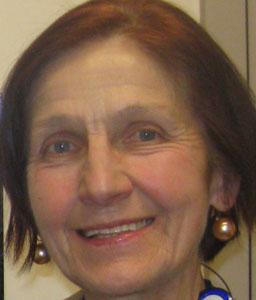
By Kathleen Belinga
Special to The Miscellany
COLUMBIA—Tending to the body, mind and spirit of veterans is the ambitious daily reality for Dr. Barbara Crockett, medical director of the Post Traumatic Stress Disorder Clinical Team of the Dorn Veteran’s Administration.
 This grandmother and member of St. Peter Church finds deep personal satisfaction in her work.
This grandmother and member of St. Peter Church finds deep personal satisfaction in her work.
“I’m so honored to be able to address the three dimensions of each of these men and women,” she said in an interview. “As a psychiatrist, this allows me to enter the domain of the spirit in an integrated way.”
In 2005 the National PTSD Center headquartered at Yale University had seed money to start programs in several cities.
Crockett was chosen to start the WJB Dorn Medical Center’s Columbia program with a small team of social workers. They apply an evidence-based combination of treatments that rely on medication and psychotherapy.
The Dorn team uses an integrated, three-pronged approach to combat psychiatric trauma, the doctor explained. It examines the body with attention to the brain and neurological system. It probes the mind for various pathologies such as phobias, neurosis and psychosis. That is followed by an examination of a patient’s spirit — resilience, outlook, attitude and all that comprise the flame that keeps one alive.
The patient who survives a neardeath experience often looks at the world differently. Degrees of optimism, hope, and a sense of well-being are among the vital signs that permit the physician to formulate a prognosis as surely as pulse rate, temperature and blood pressure.
Patients with or without religious affiliations may have faith and relationships which foster support by others to combat feelings of helplessness.
Crockett said her experience has shown that resilience of the spirit is teachable. Her program uses the Conner-Davidson Resilience Scale to help evaluate a patient. Use of breathing and other exercises, meditation techniques, pet therapy and even a mobile “app” to coach symptom management are proving effective in improvement of the pain and stress experienced by patients, she said.
Current evidence-based treatments, documented in literature such as “CNS Spectrum,” a journal of neuropsychiatric medicine, include exposure therapy which focuses on the impact of the patient’s trauma.
Crockett’s dream is to enlarge the program, which serves approximately 60-80 veterans chiefly from the Vietnam and Gulf Wars. She estimates that seven out of 10 patients are males, but a rise in females is evident. Eliminating any waiting list to better accommodate those returning from Iraq and Afghanistan is her fond wish.
The avid violinist said her own spirit is nourished by music. She hailed the recent national
campaign to remind military men and women and their families that if they feel or observe any stress to speak out. Discuss traumatic feelings whenever possible and seek help without fear of consequence.
